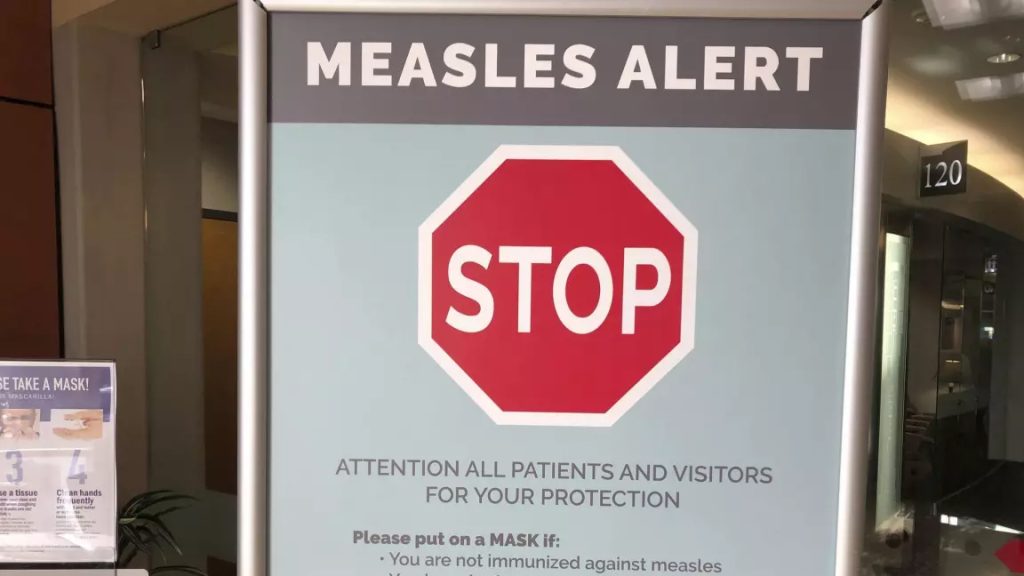‘More and more serious’: Q&A with nurse on working conditions inside Quebec hospitals
Posted September 22, 2021 12:41 pm.
Last Updated September 22, 2021 12:46 pm.
MONTREAL (CityNews) ─ Working conditions in Quebec’s public health-care system are pushing nurses and recently graduated nursing students into the private sector or away from the profession entirely, further exacerbating a shortage of nurses in provincial hospitals.
The COVID-19 pandemic meant nurses in Quebec faced a significant amount of mandatory overtime. They were also denied leaves of absence or told they could not travel outside the country at the risk of facing unpaid suspension.
Now Quebec is short about 4,000 nurses, according to Health Minister Christian Dube. The situation could worsen in the upcoming weeks as health-care employees face suspension without pay if they are not adequately vaccinated against COVID-19 by Oct. 15.
CityNews spoke to Melanie J. Boulerice, the CEO of Nomadic Nurse Agency, to get her perspective on the staff shortages currently being experienced in Quebec’s hospitals.
The government is planning to unveil a plan to help the nurse shortage. What is your reaction to that?
Well, to be quite fair, this is a cry for help that’s not new to us. We have been asking for help on the health-care sector for quite some time now. This pandemic has simply catalysted our needs to such a high level that we now are facing a complete health-care crisis where we cannot continue our ways, and we cannot continue these ways of working, we cannot continue to work with these resources and conditions. Tax-paying citizens deserve better, health-care professionals deserve to do their job properly, and they deserve to do their job with sanity. The job is so difficult and challenging now that it’s very difficult to be teaching nursing students the future of health care, because it is now not what it used to be. And even though we’ve had several years of complex issues, it is significantly getting worse. And finally, after having 4,000 nurses burn out or leave, this is where we are finding a solution. We should have found a solution a long time ago.
RELATED:
- Quebec preparing ‘mammoth’ bill to rework province’s health-care system
- Report calls on province to look at nursing problem
You’re on the ground right now and you’re seeing what’s happening in these hospitals. What are you noticing?
We are seeing young COVID patients, not just young COVID patients who are going home, young COVID patients intubated and being sent to the ICU needing treatment for quite some time. It is not what it was at the beginning of the pandemic. The beginning of the pandemic, yes, we did have some young candidates, but we had majority of elderly people. That role is quickly switching. And we need to be aware of that. This part of it is not a joke. This is getting more and more serious. And this is what we were fearful of. Because when a virus mutates, it can get more dangerous as well as it can get less dangerous. We need to be aware that right now we are seeing young clientele coming in, requiring intubation who are generally healthy. And yes, we had this problem before, but it’s more prominent now.
Quebec is set to unveil its plan to address the nurse shortage on Thursday. What do you want to see?
Come to the emergency room. Come to the critical care unit. Politicians who are making these decisions should see firsthand what is going on. And I’m not just talking about Montreal. I’m talking about up north. I’m talking about in the more rural areas. They need to see what their health-care system is doing, and how it’s treating people, and how our health-care professionals are burnt out. Four thousand nurses is now. But the conversation of nurses leaving the profession or leaving bedside is higher than 4,000 − significantly higher. So I would love to see politicians who are making these decisions to make their way into our health-care system, our tertiary health-care system, the system that is designed to treat illness instead of prevent illness, to come in and take a look at what’s going on.



